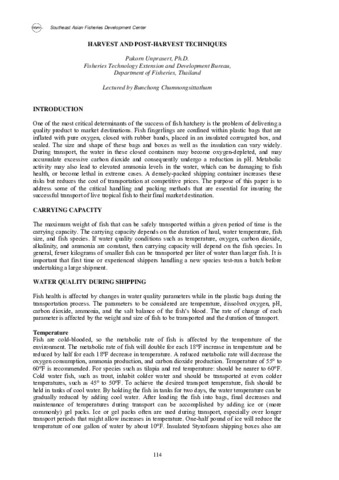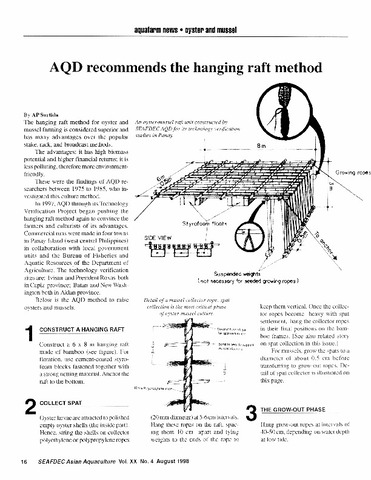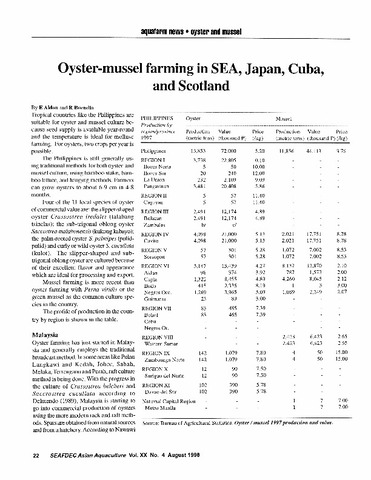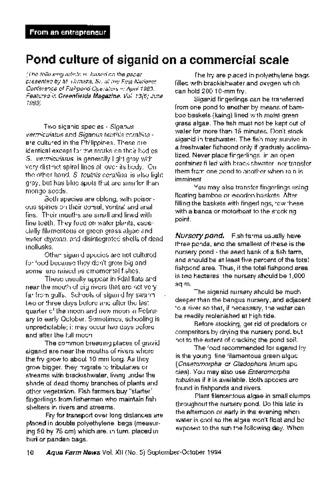Harvest and post-harvest techniques
Share
abstrak
The maximum weight of fish that can be safely transported within a given period of time is the carrying capacity. The carrying capacity depends on the duration of haul, water temperature, fish size, and fish species. If water quality conditions such as temperature, oxygen, carbon dioxide, alkalinity, and ammonia are constant, then carrying capacity will depend on the fish species. In general, fewer kilograms of smaller fish can be transported per liter of water than larger fish. It is important that first time or experienced shippers handling a new species test-run a batch before undertaking a large shipment. [Extract]
Suggested Citation
Unprasert, P. (2008). Harvest and post-harvest techniques. In Handbook on Community-based Aquaculture for Remote Rural Areas of Southeast Asia (pp. 114-119). Bangkok, Thailand: Secretariat, Southeast Asian Fisheries Development Center.
Subjek
Related items
Showing items related by title, author, creator and subject.
-
AQD recommends the hanging raft method
Surtida, Augusto P. (Aquaculture Department, Southeast Asian Fisheries Development Center, 1998) -
Oyster-mussel farming in SEA, Japan, Cuba, and Scotland
Aldon, Eva; Buendia, Romeo (Aquaculture Department, Southeast Asian Fisheries Development Center, 1998) -
Pond culture of siganid on a commercial scale
Aldon, Eva T.; Southeast Asian Fisheries Development Center, Aquaculture Department (Aquaculture Department, Southeast Asian Fisheries Development Center, 1994)





